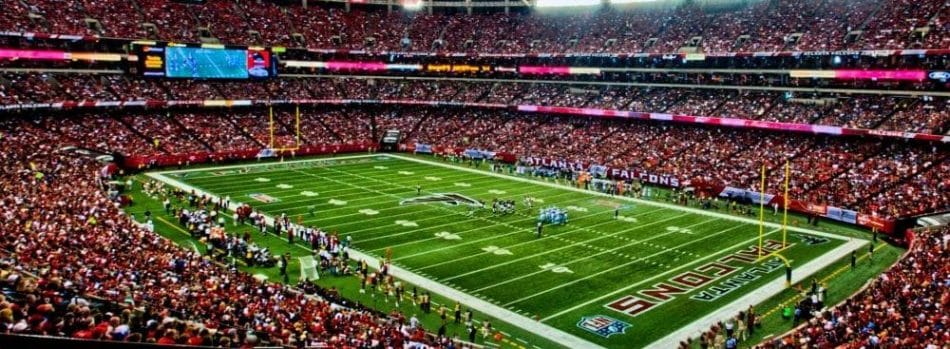The NFL season was practically the only one on the sports calendar unaffected by the coronavirus, though that soon could change. Health experts have cautioned that if football is to occur this fall, it will look quite different from what millions are used to.
Epidemiologists Saad Omer and Zach Binney revealed their outlooks for the possibly jeopardized season on the Falconholic podcast this week. While the pair suggested that nothing is certain, there are steps that can be taken to hold games this fall even as local authorities doubt the immediate future of sports games and other events.
“It would be a lot easier to mitigate risk if whatever is happening around the stadium, whatever is happening around the team or the whole league is under control,” said Dr. Omer, who serves as Director of the Yale Institute for Global Health. “So if we have substantially increased testing capacity and contact tracing capacity and all of that, then the overall risk goes down.”
These measures have been highlighted by other experts, including the NFL’s chief medical officer and Dr. Anthony Fauci as an indicator for how leagues can return to stadiums and arenas. However, the likelihood of playing games for any number of spectators is small as researchers navigate possible treatments and vaccines. As the country grapples with the virus and its many life-altering impacts, experts also recognize that dealing with these sudden changes can become slightly easier with the presence of sports again.
“It is important to recognize that sports are—without sounding too philosophical—an expression of our shared humanity. It’s a microcosm of how we behave as societies. And they play a really substantial role in returning us to normalcy. And even if that normalcy means that we are sitting in our living rooms, and for awhile we don’t get to go to big arenas and enjoy that as a collective experience in the same place, it is important to be creative about these things,” said Omer.
“Yes, it will not be easy,” he added. “It will take substantial economic resources. And it’s the leagues responsibility to be safe, hard-nosed, and to seek out folks who know what they’re doing in terms of disease control etcetera and think through it with some level of maturity to say, ‘Look, these are the benchmarks we set out from now.’”
In the NFL’s case, the league is doing its part to mitigate risk by holding all offseason activities – including next week’s draft – remotely. Teams are aiming to launch training camps as usual in July, though the orders of certain states could alter that hope. The league has reportedly begun discussing contingency plans of a shortened season or games without fans, though experts suggest taking it a step further to ensure health and safety.
“The ideal solution, which is really really difficult, is to create this kind of biodome, which would be a totally closed system that the virus couldn’t enter. Which would be players, coaches, broadcasters, officials, medical staff; and, by the way, all the support staff necessary to pull this off, like the people who run the hotel, your bus drivers,” Dr. Binney told the Falconholic. “All of these people would have to be isolated and tested multiple times for two weeks to make sure they were virus-free, and then transmitted as quickly and cleanly as possible into this quarantined system that you’re trying to run. And then you would have to maintain that really, really aggressively.”
To date, the NFL has seen a handful of COVID-19 cases throughout the country. New Orleans Saints head coach Sean Payton test positive last month, while the Los Angeles Rams’ Brian Allen and Denver Broncos’ Von Miller have recently become infected.



